Scars: Inter-generational Perpetration
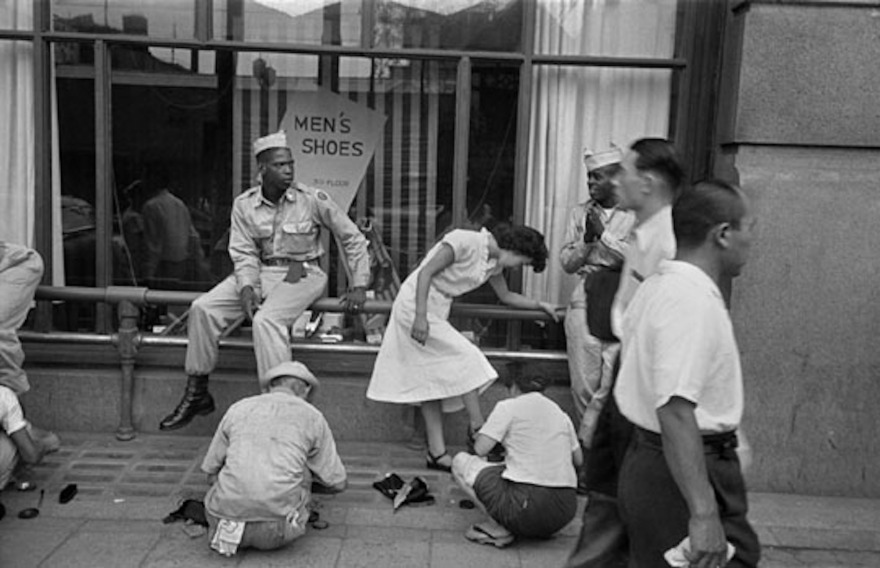
Currently, there are many articles regarding the passing down of trauma in DNA. I am particularly focusing on trauma as a result of war, genocide, mass violence, and social oppression leading to refugee-making and exile, as well as such things as domestic violence. Inter-generational trauma is real. I did not need a scientific research paper to tell me this. However, as usual, I find that this kind of research, and these kinds of articles, have contradictory effects, like mostly everything in public life. Especially, if it has to do with oppression. Thinking about my own life, and the trajectories from what I know of my father’s life and mother’s life, and their parents’ and the conditions through which they survived and thrive, I see many issues. For now, I want to discuss five (5) distinct ones first, in relation to this “thing” we are beginning to mainstream: intergenerational trauma, the internal scars passed through time. The five I want to mention here are:
- In medicalizing— to make something medical and biological—some thing inside of someone, makes the onus of the trouble on the victim, and their relations
- If #1 is examined, and we look at the history of the world since colonization, especially, we can see that the “trouble” with the world is that the people of color, women, LGBTQ, the poor, and the differently-abled— the Victims—must do the work.
- If we are to complexify, then we must look at the different modes of post-trauma and how society struggles with both the causes and effects of trauma, including healing.
- It seems that what is missing is an examination of inter-generational perpetration.
- We must understand the tactics of continual perpetration.
So victims must continue to be “understood.” Hmmmm. We must take pills and go to therapy and build a “support-system” around us to help us “cope” with trauma (apparently). Even if we have supposedly led happy lives, there is something that continues to pop up. It is located inside of a person’s body, or a community’s body. It must be eradicated, corrected. It is a “wrong” inside of or upon that body. Never-mind that the trauma was most likely perpetrated upon them and can be changed. Often, it is a language that takes the accountability away from the perpetrator. “It happened” to the victims. Nothing seems to “have been done” to them. The language also favors the perpetrator.
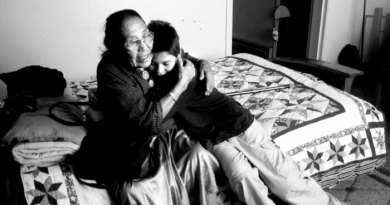
Self-medication is a direct by-product of medicalizing, especially for those without resources to get to expensive therapists (which include finding one that understands your exact trauma), and for those who understand many of the institutionally developed methods of “healing” are based in dominant culture thought. Self-medication may take the form of “recreational” drugs. But it may also show up as addiction, self-mutilation and cutting, couch-potato-ing, suicide, and other similar ways of being and resulting actions, as well as the more extreme forms of rage such as mass killing.
In making inter-generational scars something to focus on, it feeds the medical and psychiatric establishment, because the causes are never-ending.
The causes, the perpetrators of social ills, survive through generations. They are passed down through normalization. When things are “normal,” they are not questioned, much less examined. And when they are questioned, they are questioned by the very same discursive framing, discourses, and thinking that created them, with a certain hierarchy, with certain centerpieces, usually showing up as assumptions. So although we knowingly, or just as merely being “normal,” we may be maintaining status quo social oppressions, while those that suffer from it, may be driven to what we like to call “mental illness.”
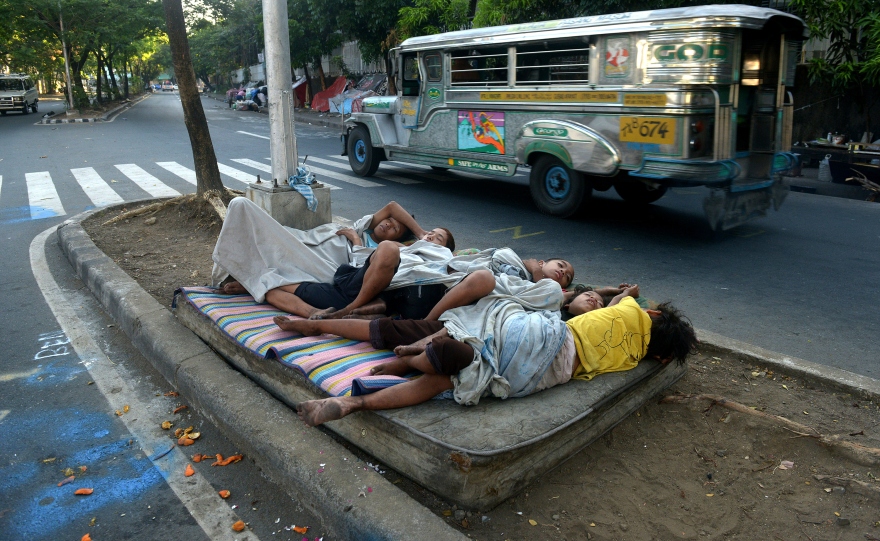
People should understand that the present world structure was largely created through genocide in the making of nations. and then the two WORLD WARS. Many of the world’s most prosperous places/spaces and ways of living, were created from EXPLOITING suffering and gaining from it. It is made further more enduring because the structures that created the world wars and killings millions of people and destroying life-spaces everywhere, through the use of weapons, economic manipulation and force, and cultural military occupation–and most often a combination of all of these. So our identities today, are constructed through certain kinds of genocide, an idea of annihilation. These thoughts are not original, and are a centerpiece of so many social theorists who have done the most to think into peace and the eradication of violence and oppression.
What structures are in place, and have been, that are seemingly real, normal, and long-lasting through centuries? What forces of social organization (emotional and cultural first, then the institutions come later) form our worldviews and ways of making happiness and excluding suffering? For one example, forms of sexism and heterosexism in relation to upward mobility and survival, and in extreme cases the development of misogyny, have links to domestic violence, for heterosexual couples as well as LGBTQ folk.
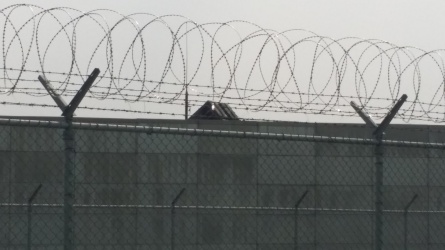
Privileging entitlements to use violence for gaining a status, send a message, or to maintain an identity, or a position, is often a product of inter-tribal warfare and imperialisms that developed from those tribal products. Tribalism, however is not the culprit. Thinking into histories, one of the dangers that dominant mainstream western metaphysics have produced, is the idea of a single origin to things. There were tribes that did not privilege violence. But imperialism always imposed itself through cultural or physical violence. Colonialism added structures and written rules and institutional power dynamics on top of imperialist modes of being. Control, then, is often a way that the contours of trauma are formed and given out.
When have any perpetrators of colonial violence and who have become world powers, indicted anyone responsible? So shall we not be surprised with the continuation of racism, sexism, homophobia, etc.? Will a leader from a western power ever be indicted for war crimes? But are the people who actually obeyed and carried out the torturing, the killing, the maiming, the taunting, the shoving, the throwing-out-of-their-homes, the destroying of their communities, the assimilation of the people by outlawing their language or to make anyone speaking their original language unable to move upward in society, the not-believing their stories of being victimized by someone of the dominant ilk, the yelling out of dirty names against those people in the neighborhood, the lying to get that person fired from their job, the shunning of the relative that marries a person that is not in the dominant group, the setting on fire of someone who degraded their family honor by having sex of some kind or even talking to someone “wrong,” the denying someone medical services because they are of a certain identity or cannot pay, etc. etc. etc. etc. etc. — are they not punish-able? not responsible? PRECISELY BECAUSE THEY (we) ARE, in the current state of thinking about “human rights” there will be NO PUNISHMENT or Accountability for the millions of people alive in every nation state, who perpetrate oppressions. These are also ways in which trauma is intensified in the victims—the unaccountability, the impunity.
It’s easier to say that we should heal the victims and make them able to survive our evils. It’s sickening.
I do believe that the world can become better from struggling with learning to do things differently. This takes a lot of labor. Some folks are doing their share of doing this. The rest don’t care and will have thousands of excuses. This is also the problem. Bourgeois identity and the notion of being comfortable and wanting everything safe and easy, has become the privileging of the world, and the continuation of oppression, as we assimilate into becoming oppressors. The nation-state system sets it up this way and makes it very very difficult to resist.
“Safety” and the individual would also link with the ignoring of history, since this would bring focus on how we got here and that is “not good.” One can only be comfortable, as an individual or a group/community, if one is willing to kill off more of ourselves in order to align with the dominant—the accepted and demanded. Interestingly, the dominant never sees you, in those moments, as one of them. You are anonymous, one of the many assimilated, alike, with diversities co-opted, exploited, destroyed, forgotten. Inter-generational trauma is also created by that very cutting-off, the ignoring of and throwing away the older generation as a way of comforting ourselves (younger is better ideology). In many cases, the “older” generation carries the very virulent religious and racial and sexist prejudices that we don’t want to be reminded of.
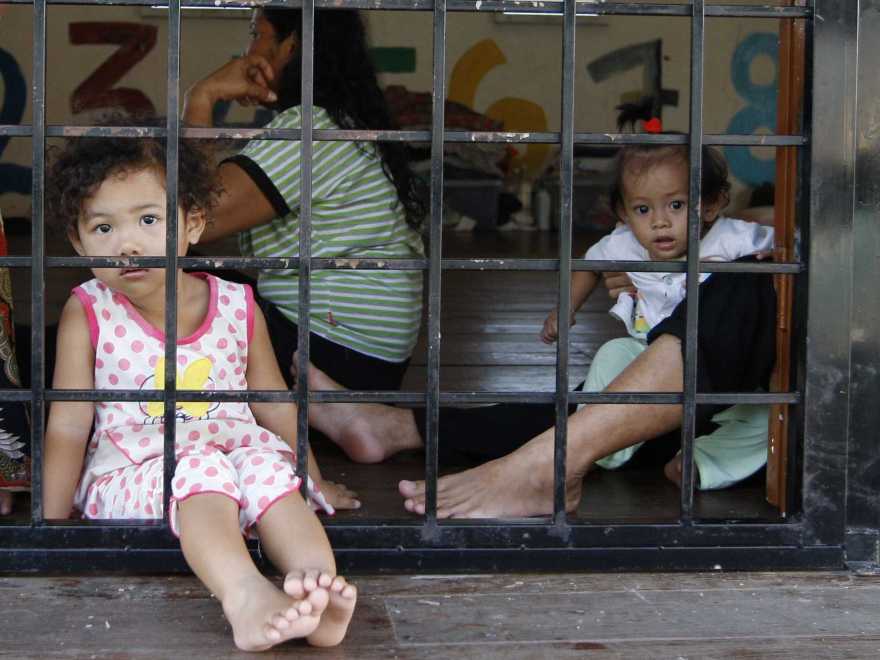
Yet in many cases, they are the victims of national and cultural dominations and do not carry those prejudices. We cannot write-off and ignore the issues of elder care and listening to, and recording our relations’ stories and to learn from what happened, or unlearn their more egregious personalities. Most often, the most virulent and difficult personalities come from a lifetimes of loss, grief, displacement, horrific violence and torture, and the exhaustion of just living. This brings about the constant pulling up out of oneself, the aggression necessary to survive. Often, when we ourselves are comfortable, we do not understand or want to understand. This creates more suffering, in our ignoring of it. We can understand ourselves better through knowledges our ancestors carry. Nowadays, we scoff at this as old-fashioned and ancient. In this, we can see a genocidal impulse. The extinction of all that is unpleasant will bring us unpleasantries because in all of history in its larger scope, are the answers we seek.
The last thing I want to mention here, is the notion of “the individual.” Everyone around the world, is an individual. But Individualism is not the same. Individualism has become more of a priority in a world where our past communities have been displaced and broken apart, largely through war, genocide, and domination by nation-states and resistance. The prioritizing of the “individual” over social and community forms is individualism. It is an ideology. It’s prevalent now in this period of breakdown. It is not that it is evil, but it can be blind to communities, traditions, and strategies for ways of living together. Individualism often trivializes relational concerns and responsibilities and puts more credit onto individual desires and needs and morals of the more youthful and capitalist-inspired, no matter how disconnected they are from reality or of others around them.
This presents a problem for making strategies of living together with difference. More and more, people are unable to live with difference and ready to go to battle—which is again, a return to the entitlement to violence through some means. Our present issues with racism are very much a part of this dynamic of forgetting and making-up and naturalizing racism. Race was a made-up construct of colonial Europe. Now people kill each other with impunity for it. In addition, I have noticed that so many Americans nowadays, think of everything having to do with oppression, is about the individual, individual perpetration and victimization. It’s supposedly personal, or about hatred. Oppression is social-historical. It is about social structure and socially-forced norms. Healing oppression cannot be done with individualistic methods. This is how normalizing an ideology of individualism actually can aid in the continuing oppressions. In our present system, Annihilation is always around the corner for anyone.
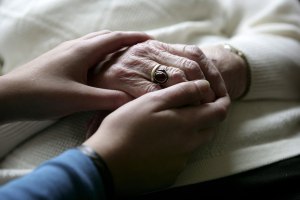 I say that we must continue to find ways to heal inter-generational and ongoing trauma in the present. This is a given.
I say that we must continue to find ways to heal inter-generational and ongoing trauma in the present. This is a given.
But the lack of attention paid to perpetration through generations is lacking precisely because it has to do with our normals, the silence, that which we can’t really do easily. It is not always done with malice.
But we should really really do something about perpetration systems that we are all continuing without any alarm. Our normal and everyday must shift. There are many people, groups, thinkers, artists, activists and others, who have been and are working for social change. But some sound and look good precisely because they are linked to languages that continue to perpetrate only through sounding “common sensical” or agreeing with our present. To really make shifts, radical turns must be made. Difficult challenges must be met. The most difficult may be that when anger at the dominant system has accumulated, one may become a resistor that takes on the characteristics, only on the other end of a binary-set up by the dominant system. This is still the same system, not radically different, and although on the opposite pole “against” the system, becoming the same part of the dominant dynamics.
Otherwise, we can be comfortable blaming victims and helping victims while we continue to produce and create victims over and over. Then we cry when we burn out. It’s an ultimate stupidity that I hope we get out of.
Posted in: Colonialism, De-colonization, Deep social justice, ethnic cleansing, globalization, human rights, imperialism, Intergenerational, Internalized Oppression, Military Industrial Complex, Neo-colonization, oppression, Social Justice, Social Justice Notes, violence, war babies, war children, white supremacy
It’s very interesting and something I didn’t realize until my college years that oppression and racism are often made properties of minority groups rather than crimes of the majority. The continuing problems that minority groups face become a burden that is their duty to shake off rather than a series of acts that members of the majority continue to perpetrate. I know that addresses like 1% of this post but it was the first thing I thought of.
LikeLiked by 1 person